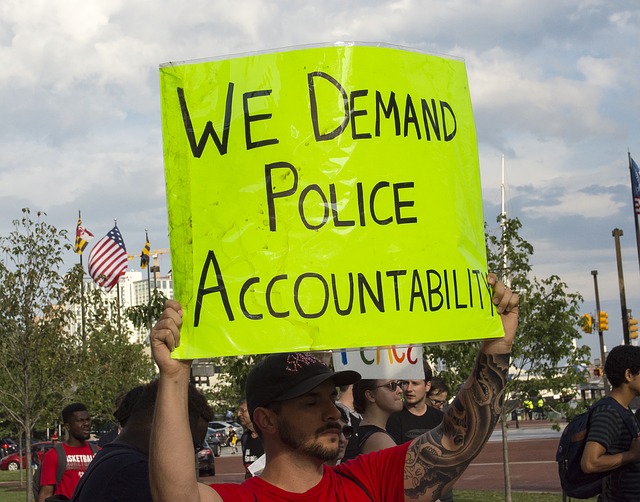Gansler: A guilty Chauvin verdict would likely be sustained upon appeal
Update: 5:10 p.m.: Chauvin has been found guilty on charges of second-degree unintentional murder, third-degree murder, and second-degree manslaughter.
@BryanRenbaum
Former Maryland Attorney General Doug Gansler said Tuesday that if the former Minneapolis police charged in the killing of George Floyd is convicted on murder and manslaughter charges that those convictions would likely be sustained by a higher court upon appeal.
On Monday afternoon shortly before the partially-sequestered jury went into deliberations, Judge Peter Cahill told defense counsel in the case that recent remarks by Rep. Maxine Waters (D-Calif.), who last weekend traveled to Minneapolis and urged protesters to “get more active” and “get more confrontational” if Derek Chauvin is acquitted-may present grounds for an appeal that has a good shot at being successful should Chauvin be convicted.
Cahill also slammed Waters and other elected officials for having commented on the case. Cahill’s comments came as he denied defense counsel’s motion for a mistrial. A verdict in the case could come as early as today.
The case is in the national spotlight as media reports of police killings of unarmed African-Americans are becoming more and more frequent. Many states, including Maryland, have reacted to such incidents by enacting comprehensive police reform legislation into law.
“While Representative Waters comments, and those of many others regarding the potential outcome of the trial, may present ‘grounds’ for appeal, the chances of being successful in overturning the verdict would be minimal,” Gansler told MarylandReporter.com.
Gansler, a Democrat, who served from 2007-15, added: “In this case with universal pre-trial publicity, the judge and counsel took great strides to sanitize the jury and pick jurors who took an oath to be committed to judge only the facts presented in the courtroom.”
But Steven H. Levin, a Baltimore-based attorney and former federal prosector, said it is unclear whether a potential Chauvin appeal would be successful.
“Whether Chauvin would prevail on that issue is difficult to say. Ordinarily, an appellate court is looking to see if the trial court abused its discretion on such a matter. For instance, did the judge determine whether the comments have a potential for unfair prejudice? It seems pretty clear that Waters’ comments have that potential, and the judge seems to agree. Did the judge canvass the jurors to find out if they have learned of the potentially prejudicial comments. Did the judge examine individually exposed jurors—outside the presence of the other jurors—to ascertain how much they know of the distracting publicity and what effect, if any, it has had on that juror’s ability to decide the case fairly. Did the judge properly instruct the jurors to ignore matters not in evidence?”
Levin added: “Raising an issue on appeal and prevailing on that issue are two very different things, of course. It remains to be seen if prejudice resulted from Waters’ comments and the court’s subsequent handling of that matter.”
Sen. Jill Carter (D-Baltimore City), who is a former public defender, said that although she is not acutely familiar with Waters’ remarks she does not see how they rise to the level of incitement.
“It just doesn’t make sense to me.”
House Republicans led by Minority Leader Kevin McCarthy (Calif.) are trying to get Congress to approve a resolution that would censure Waters for her remarks. The measure is unlikely to pass unless some Democrats decide to break ranks with their party and vote for it.
Waters has rejected claims that her remarks amount to a call for violence. The congresswoman has said that she was merely advocating non-violent protests such as those that took place during the Civil Rights Movements of the 1960s.

MarylandReporter.com is a daily news website produced by journalists committed to making state government as open, transparent, accountable and responsive as possible – in deed, not just in promise. We believe the people who pay for this government are entitled to have their money spent in an efficient and effective way, and that they are entitled to keep as much of their hard-earned dollars as they possibly can.

